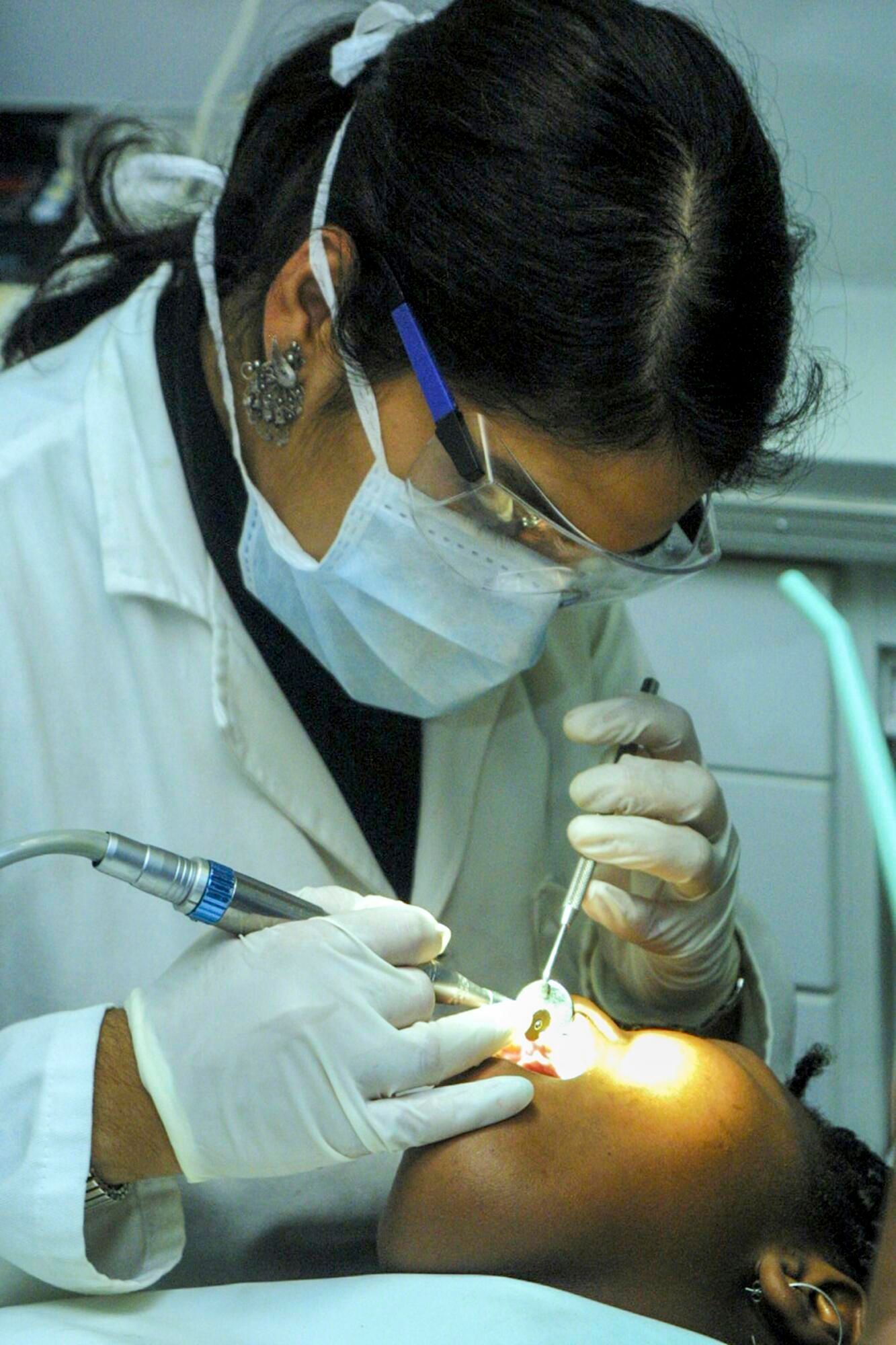Are you dealing with multiple dental issues that make chewing, speaking, or smiling uncomfortable? If so, you might have heard about full mouth reconstruction as a solution. But what exactly is it, and is it the right choice for you?
In this blog post, your expert team at TERSA Oral and Facial Surgery will break down everything you need to know about full mouth reconstruction in simple terms. From what it involves to who it's suitable for, this information will enable you to make an informed decision about whether or not full mouth reconstruction is the right choice for you.
What is Full Mouth Reconstruction?
Full mouth reconstruction, also known as full mouth rehabilitation or restoration, is a comprehensive dental treatment that aims to address and correct various oral health issues affecting the entire mouth.
Unlike routine dental procedures that focus on specific problems, full mouth reconstruction involves a combination of restorative and cosmetic procedures to rebuild or restore all teeth in the upper and lower jaws. This extensive treatment is typically recommended for individuals with multiple dental concerns, such as:
- Extensive tooth loss
- Severe tooth damage
- Misaligned bite
- Chronic jaw pain
- Cosmetic issues
By addressing these issues comprehensively, full mouth reconstruction and oral surgery can improve oral function, alleviate discomfort, and enhance smile aesthetics.
The goal of full mouth reconstruction is not only to restore the health and function of the teeth and gums but also to improve overall oral health and enhance the patient's quality of life. With the right combination of treatments, individuals undergoing full mouth reconstruction can achieve a healthier, more functional, and aesthetically pleasing smile.
Common Reasons for Full Mouth Reconstruction
Several factors may lead someone to consider full mouth reconstruction. Let's highlight some of these here.
Extensive Tooth Loss
Extensive tooth loss refers to the condition where a person is missing several or all of their natural teeth. This can occur due to factors like decay, gum disease, trauma, or congenital conditions. Full mouth reconstruction can replace missing teeth with dental implants, bridges, or dentures.
Severe Tooth Damage
Severe tooth damage refers to teeth extensively decayed, fractured, or structurally compromised. This condition can affect oral function and aesthetics, requiring comprehensive dental treatment to restore tooth strength and appearance.
Misaligned Bite
A misaligned bite, or malocclusion, results in uneven tooth alignment causing discomfort and difficulty chewing. It can lead to jaw pain and dental issues if left untreated. Full mouth reconstruction can realign the bite for improved function and oral health.
Chronic Jaw Pain
Chronic jaw pain refers to persistent discomfort in the jaw joint area, often associated with temporomandibular joint (TMJ) disorders. Full mouth reconstruction can include treatments to alleviate jaw pain and improve jaw function for enhanced quality of life.
Cosmetic Concerns
Cosmetic concerns involve dissatisfaction with smile aesthetics due to issues like tooth discoloration, misalignment, or shape. Full mouth reconstruction incorporates cosmetic dental procedures to enhance smile appearance, restoring confidence and overall well-being.
Components of Full Mouth Reconstruction
Full mouth reconstruction typically involves a combination of restorative and cosmetic dental procedures tailored to address each patient's unique needs. Let's highlight some common treatments included in full mouth reconstruction.
Dental Implants
Dental implants are titanium posts surgically implanted into the jawbone to replace missing teeth. They provide a sturdy foundation for dental restorations like crowns or bridges.
Dental Crowns
Custom-made dental crowns are caps placed over damaged teeth. They restore their shape, strength, and appearance while protecting them from further damage.
Dental Bridges
Dental bridges are prosthetic devices used to fill gaps left by missing teeth. They are anchored in place by adjacent natural teeth or dental implants, restoring both function and aesthetics.
Dentures
Dentures are removable prosthetic devices designed to replace multiple missing teeth. They restore oral function and aesthetics for individuals who have experienced significant tooth loss.
Orthodontic Treatment
Orthodontic treatment, including braces or clear aligners, is used to correct misaligned teeth and bite issues. This improves both dental function and aesthetics over time.
Periodontal Treatment
Periodontal treatment involves procedures like scaling and root planing or gum grafting. These treat gum disease and restore gum health, preventing further damage to the teeth and supporting structures.
Root Canal Therapy
Root canal therapy is a treatment aimed at removing infected or damaged pulp from within a tooth. It relieves pain and preserves the tooth's structure to prevent extraction.
Is Full Mouth Reconstruction Right for You?
Determining whether full mouth reconstruction is the right choice for you depends on several factors. Here's what you should consider.
Extent of Dental Issues
If you're dealing with multiple dental problems affecting the health, function, and appearance of your teeth and gums, full mouth reconstruction may be a suitable option. Our dentists will assess the extent of these issues to develop a personalized treatment plan tailored to your specific needs.
Overall Health
Your general health and any medical conditions you may have can influence your candidacy for full mouth reconstruction and the types of treatments recommended. It's essential to discuss your medical history with us to ensure that full mouth reconstruction is safe and appropriate for you.
Budget and Insurance Coverage
Full mouth reconstruction can involve several procedures, so it's essential to consider the cost and whether your dental insurance provides coverage for the treatments you need. Our dentists can help you explore financing options and determine the most cost-effective approach to achieving your oral health goals.
Commitment to Treatment
Full mouth reconstruction often requires multiple appointments and procedures spread out over several months, so it's crucial to be committed to the process. Following our dentists' instructions and attending all scheduled appointments are essential for achieving the best possible results and restoring your oral health effectively.
Full Mouth Reconstruction Explained
To sum up, full mouth reconstruction offers a comprehensive solution for individuals dealing with complex dental issues affecting their entire mouth. By addressing both functional and aesthetic concerns, this transformative treatment can improve oral health, restore confidence, and enhance overall quality of life.
Are you ready to transform your smile and regain confidence in your oral health? Visit TERSA Oral and Facial Surgery for expert care and personalized treatment plans. Schedule your consultation today to discuss your full mouth reconstruction options with an experienced oral surgeon.




